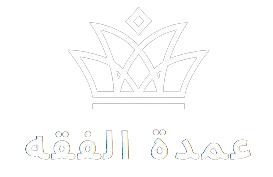It is not lawful to use 41 gold and silver vessels for purification or otherwise. 42 This is based on the statement of the Messenger of Allah (SA), “Do not drink from gold or silver vessels, and do not eat from dishes made of them, for they are for them [the unbelievers] in this life and for you in the hereafter.” 43
لاَ يَجُوْزُ اسْتِعْمَالُ آنِيَةِ الذَّهَبِ وَالْفِضَّةِ، فِيْ طَهَارَةٍ وَلاَ غَيْرِهَا ، لما رَوَى حُذَيفَةُ أن النبي قال: "لَا تَشْرَبُوا فِي آنِيَةِ الذَّهَبِ وَالْفِضَّةِ، وَلَا تَأْكُلُوا فِي صِحَافِهَا فَإِنَّهَا لَهُمْ فِي الدُّنْيَا وَلَكُمْ فِي الْآخِرَةِ."
